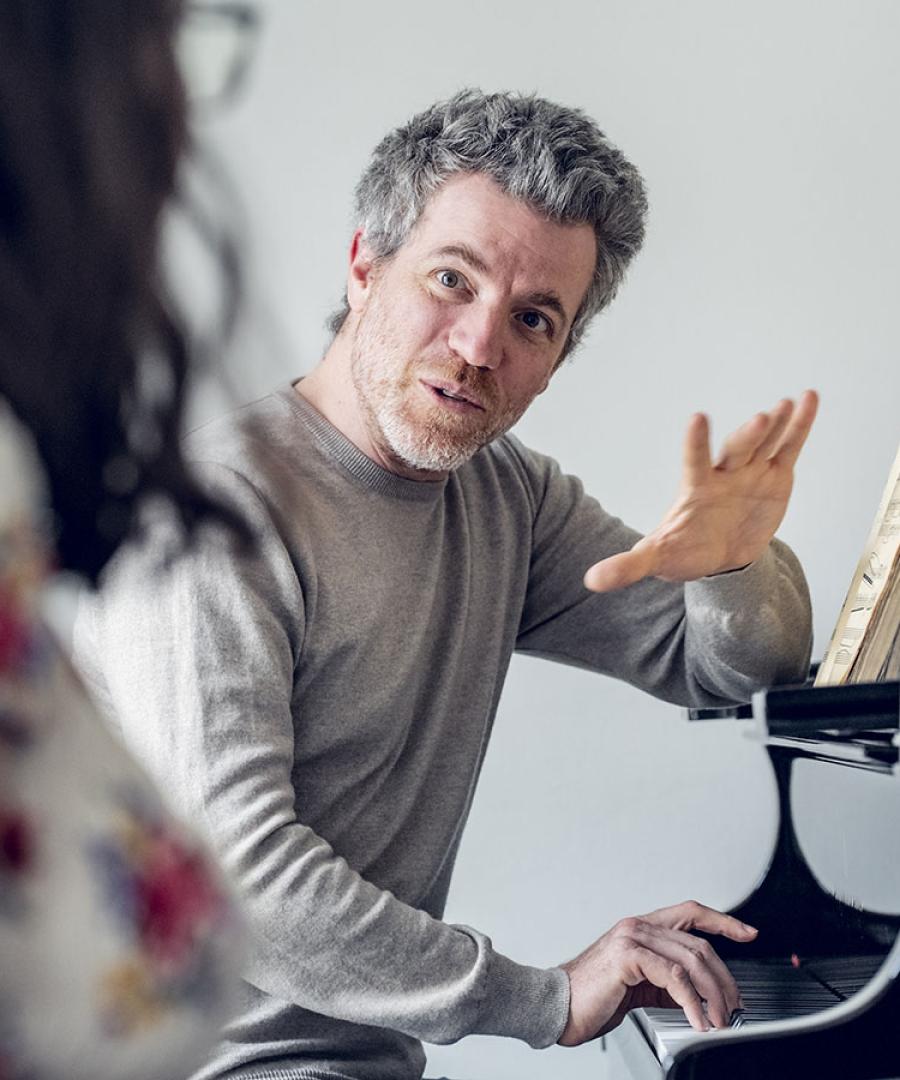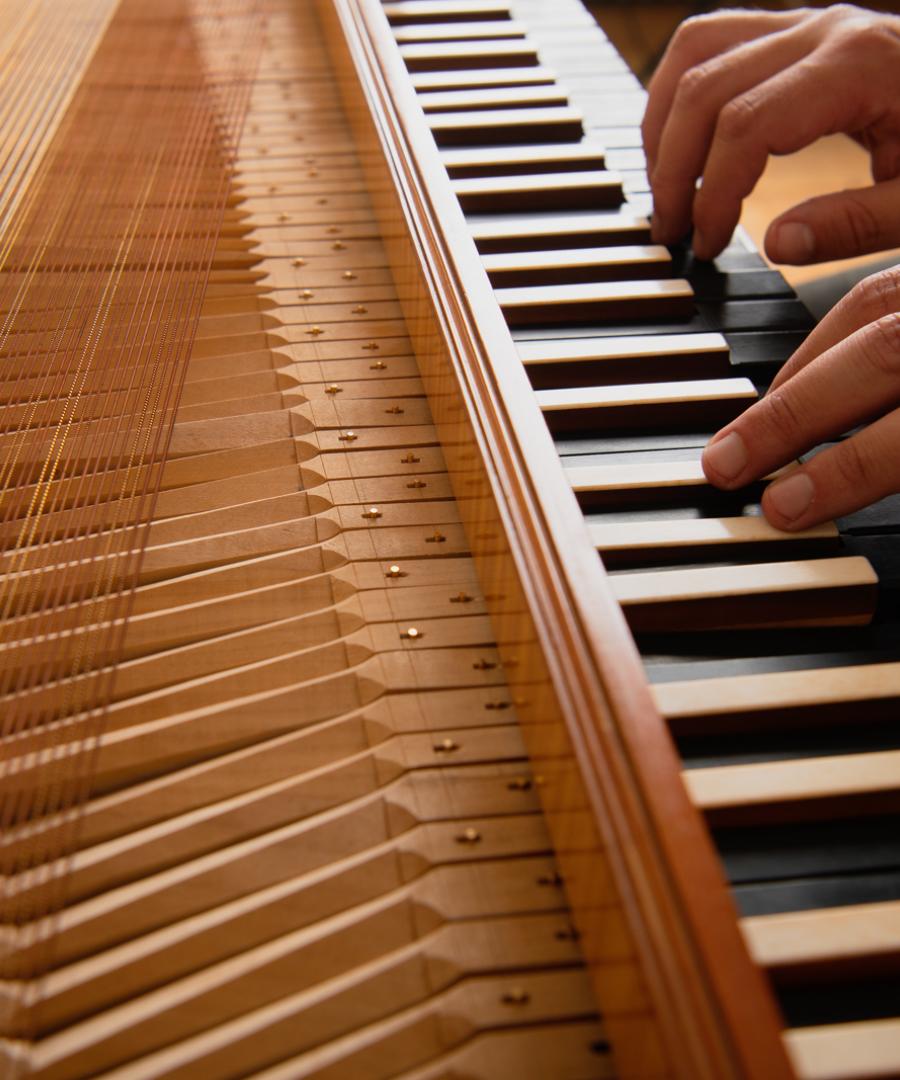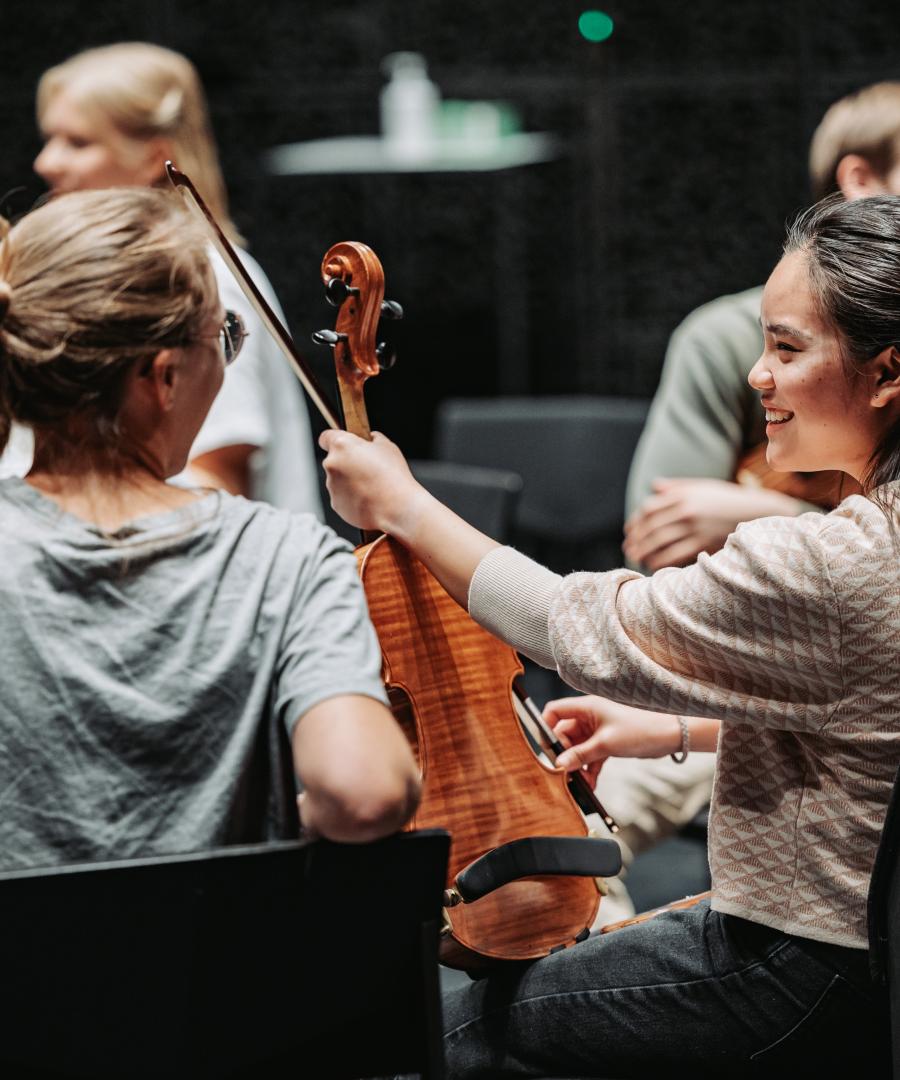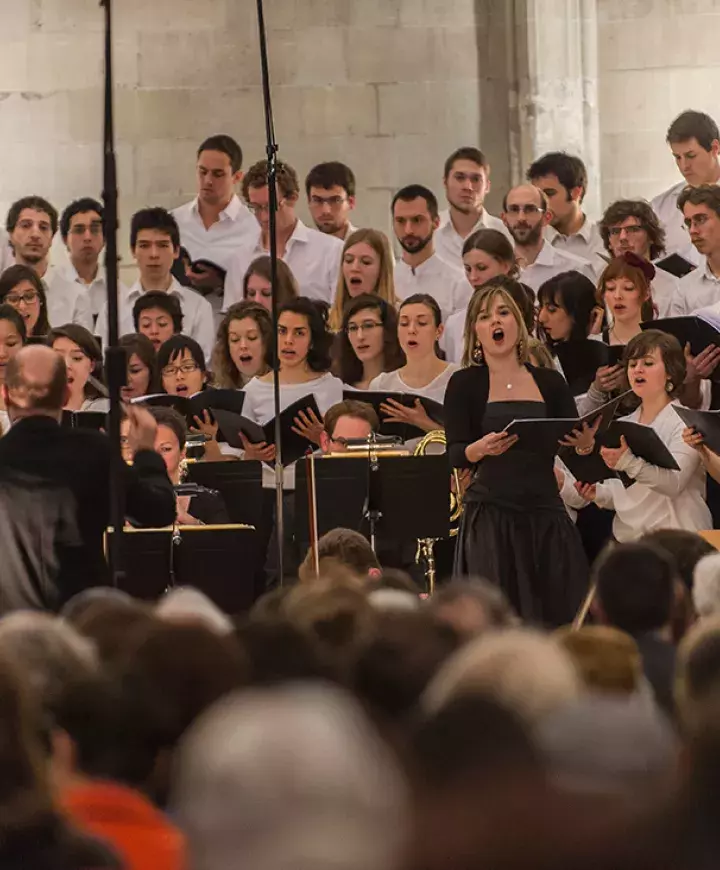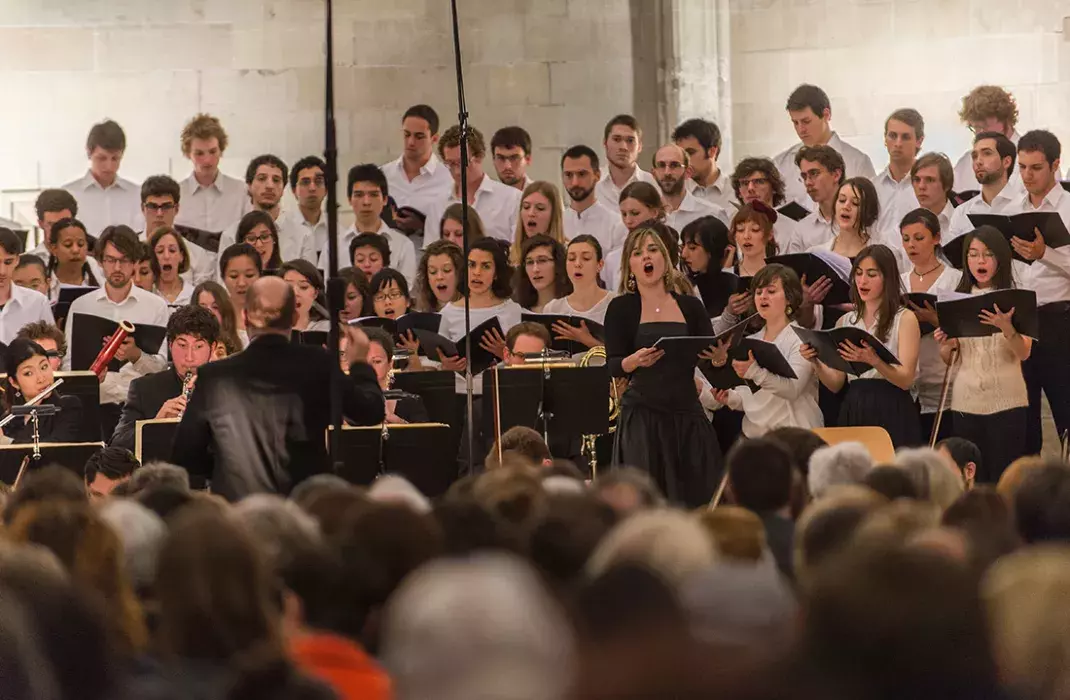- Studies
- Disciplines
- Research
- Events
- The school
Specialised Choral Conducting
This course enables a small number of students to prepare for directing professional choirs (independent ones or choirs at opera houses).
It requires singing and piano skills, along with a wide-ranging musical culture and knowledge of the repertoire. The ability to easily read scores is also necessary, along with linguistic abilities. Beyond these musical and linguistic qualities, choir directors must also acquire leadership and management qualities (including managing rehearsals).
Study plan
Abbreviations :
e = marked exam
p = validation by participation
rs = internship report
ce = co-assessment
cc = continuous assessment
SA = autumn semester
SP = spring semester
A1, A2, etc. = first, second year, etc. S1, S2, etc. = first, second semester, etc.
Admission criteria
The Specialised Choral Conducting course is accessible to students with a Bachelor’s degree or a qualification deemed equivalent in the field of singing or keyboard instruments. The candidates must prove their directing skills in front of an internal jury, by leading a rehearsal with a vocal ensemble made up of the HEM’s choristers or student singers. They must also prove that they can transpose scores (reading of keys used in the past) and scale down ensemble scores for the keyboard only.
Study programme
Main training
The main training module is centred around the practice of choral direction, supplemented with the acquisition of complementary skills in orchestra direction. In order to acquire specific experience of the profession, the students are given a chance, on top of the individual and group classes, to do an internship.
Special training
Since the profession of conductor is particularly demanding, the Master’s in choral direction provides a supplemental course on top of the general musical training in the Bachelor’s degree, with classes on theory, orchestration and harmony or counterpoint. Classes on reading scores and vocal arrangement are also offered, to enable the students to acquire these skills that are so necessary when it comes to working as a choir conductor.
Complementary and optional training
This module leaves students with some room to choose: they can choose the subjects that seem necessary to them in order to tackle their Master’s project and, ultimately, enter the profession.
Master’s Project
The Master’s project consists of a public recital with a choir recruited by the candidate themselves, accompanied by a dissertation showing critical thinking.
